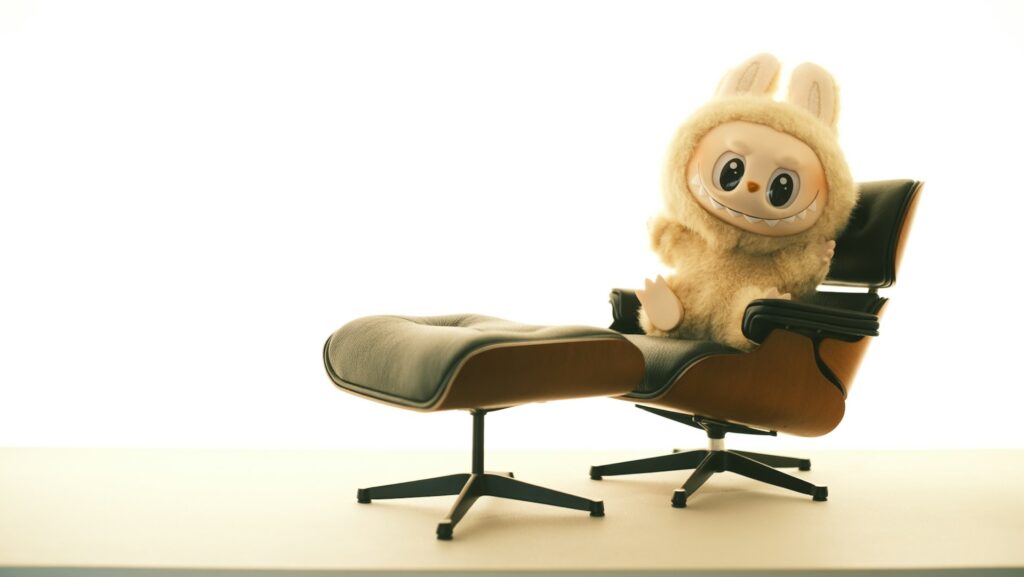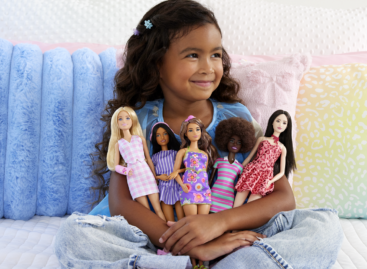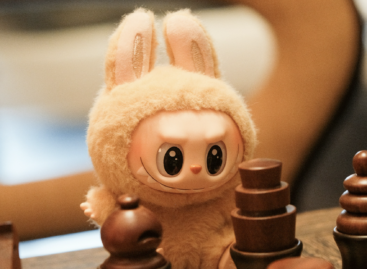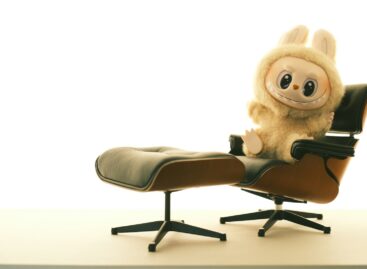Labubu fever: Pop Mart is racing with a nearly 400% profit increase – already ahead of Mattel and Sanrio
The craze built around the “ugly-cute” Labubu figures, blind box sales and international expansion have combined to rocket China’s Pop Mart: in the first half of the year, net profit jumped by 396.5%, and revenue grew by 204.4%. The share price has risen more than 200% since the beginning of the year, so the company’s market value now exceeds that of Mattel, the manufacturer of Barbie, and Sanrio, the company behind Hello Kitty, according to Reuters.
Numbers that rewrite the balance of power in the toy industry
 According to a Reuters report, Pop Mart also exceeded its previous expectations – given for the first half of 2025 –: it exceeded the forecasted revenue growth of 200% and recurring net profit growth of at least 350%. The momentum is driven by two factors: global demand for collectible figures and a shift to higher-margin foreign markets.
According to a Reuters report, Pop Mart also exceeded its previous expectations – given for the first half of 2025 –: it exceeded the forecasted revenue growth of 200% and recurring net profit growth of at least 350%. The momentum is driven by two factors: global demand for collectible figures and a shift to higher-margin foreign markets.
Blind box, scarcity, star power
Pop Mart’s business model is centered around blind box sales: buyers only find out which design they’ve received when they open the package. Rarities and limited editions create artificial scarcity, which drives up secondary market prices – in June, a life-size Labubu sold for $150,000. Demand is also fueled by pop culture: the teeth-flashing Labubu has appeared in posts and appearances by Lisa, Rihanna of Blackpink, and David Beckham.
IP portfolio: “The Monsters” takes the lead
The company markets Labubu figures under the “The Monsters” intellectual property (IP). This IP generated 4.81 billion yuan (about 669.9 million dollars) in revenue in the first half of the year, accounting for 34.7% of total sales. In addition, four other IPs, including “Molly” and “Crybaby,” each achieved sales of over 1 billion yuan.
Empty shelves, production reinforcements coming
With stocks running out worldwide, Pop Mart has promised to expand its range. CEO Wang Ning indicated in an interview last month that Labubu sales could exceed 10 million units per day from September in the fall. Meanwhile, the company’s physical presence is constantly growing: it operates 571 of its own stores (40 of which were opened in the first half of this year) and has 2,597 automated “robot stores” in 18 countries and regions.
The example of Pop Mart shows that a brand strategy based on collectability and social experience – with celebrity appearances, limited editions and blind boxed suspense – can overcome traditional toy industry players. If the company can keep its promised capacity expansion, Labubu fever could be with us in the coming months – and continue to shape the global toy industry rankings.
Related news
Pop Mart shares hit by news of weakening Labubu demand
🎧 Hallgasd a cikket: Lejátszás Szünet Folytatás Leállítás Nyelv: Auto…
Read more >Therapeutic cuteness or “crisis plush” – Labubu is the “little man’s Hermès bag”
🎧 Hallgasd a cikket: Lejátszás Szünet Folytatás Leállítás Nyelv: Auto…
Read more >







